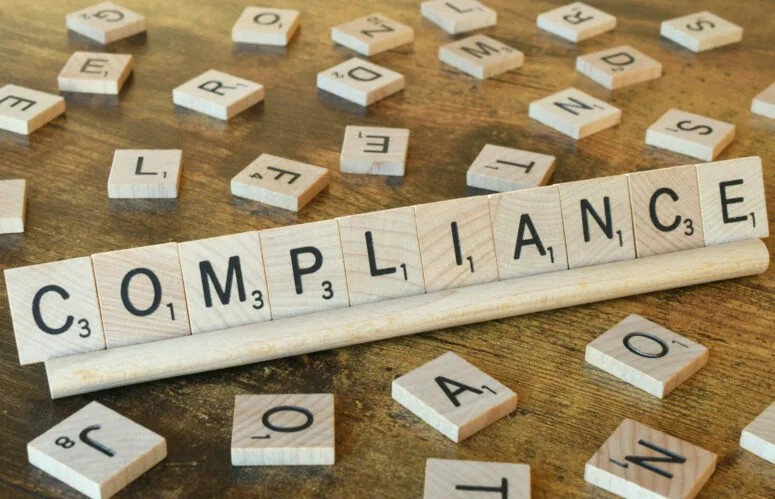Why
The problem in global supply chains

Gender equality is recognized as a fundamental human right in different human rights conventions and treaties, yet women often face gender-based challenges that hinder their ability to fully realize their economic rights and opportunities.
Women and girls face gender discrimination in global supply chains due to gender norms, cultural and religious practices, stereotypes and gender biases, unequal laws and policies, all resulting in limited access to resources, opportunities and rights. Gender in-equality also has a significant impact on diversity and inclusion in the supply chain and we still see that women-owned businesses face difficulties accessing the market.
Given that gender issues frequently intersect with other grounds for discrimination, many women are further discriminated against based on intersecting identities such as their ethnic origin, age, class, caste, migration status, gender identity and/or other factors.
The Solution
The enormous purchasing power of corporations and governments represents a huge opportunity to enhance supply chain sustainability, grow business results, improve working conditions and build an enabling environment for women’s businesses.
Gender-responsive procurement is the sustainable selection of services and goods that considers the impact on gender equality and women’s empowerment.
Gender-responsive procurement means that the purchasing organization recognizes a shared responsibility together with its suppliers, to respect and foster human rights in the supply chains. It involves assessing procurement policies and practices and their potential harm to human rights of stakeholders, and collaborating and supporting suppliers to respect and promote human rights in their operations.
* We value and respect diverse gender identities and expressions, understanding that gender is deeply personal. Our aim is inclusivity, respect, and understanding for all, regardless of gender. While we recognize gender diversity beyond the binary, for this concept note, we’ll use the two genders to align with available data.
.

Why introduce a gender lens to your procurement policies and practices
Empowering women in the supply chain presents an incredible opportunity not only to improve the lives of people making, selling, and buying products, but also to ensure more stable and efficient supply chains, increase innovation, and reach new consumer segments—all of which impact financial performance and long-term business resilience.

The Business Case
By adding a gender lens to sourcing and procurement policies, organizations experience increased revenue, reduced production costs, and enhanced productivity. Diversifying suppliers reduces risk, builds resilience and fosters innovation and competition, resulting in improved product and service quality.

Compliance with rules and regulations
Compliance with national, international and European rules and regulations plays a significant role in driving companies to focus on gender equality, diversity, and inclusion in their supply chains. Especially in sectors where women play a significant role in production / manufacturing (e.g textile and garment, food production).

Reputation
Businesses face growing pressure from key stakeholders, including customers, investors, and employees. These stakeholders increasingly expect companies to demonstrate ethical and responsible behavior throughout their operations, including their supply chains. Companies are incentivized to proactively address human rights risks to meet stakeholder expectations and maintain their reputation.

Sustainability
A successful business in the future is a sustainable business. A sustainable business is looking both at the environmental and social footprint. A business that protects its own employees and those working in their supply chains is a fair and responsible business. Gender responsive procurement contributes to achieving the Sustainable Development Goals (SDGs)
Why Work With Us

SheSupplies has a deep understanding of the disproportionate challenges faced by women in global supply chains. Our support will enable your organization to address, mitigate and prevent human rights abuses in your supply chain through fair and responsible procurement policies and practices with a gender lens.
Our support will enable your organization to:
- Develop awareness and understanding of gender-specific human rights risk in your supply chain.
- Build skills and capacity to develop and implement strategic measures and actions that drive change.
-
Mitigate risks and address gender disparities and fosters a more diverse, inclusive and equitable supply chain.
- Contribute directly to achieving several SDGs, including Goal 5 (Gender Equality), Goal 8 (Decent Work and Economic Growth), and Goal 10 (Reduced Inequalities).
-
Strengthen partnerships with like-minded suppliers committed to social justice.
- Compliance with (inter)national standards and conventions.
- Improve transparency and communication to key stakeholders (board, employees, suppliers, investors, and consumers)
The Impact
Our support focuses on enhancing gender-specific human rights awareness, skills, policies, and transparency within an organization’s supply chain. Here are some potential impacts for your organization:
Reduced Human Rights Risks: A better understanding of gender-specific human rights risks in the supply chain and ability to mitigate these risks resulting in improved working conditions, reduced incidents of gender-based discrimination and harassment, and overall better treatment of workers.
Skill Enhancement and Capacity Building: Increased skills and capacity for internal and external stakeholders supports the development and implementation of effective procurement measures that promote gender equality, diversity and inclusion.
Data-Informed Decision-Making: Gender-disaggregated data collection provides a deeper understanding of gender-related issues and guides evidence-based decision-making,
Supplier Diversity: Ability to engage and collaborate with potential new (strategic) suppliers, including women-owned businesses and businesses owned by other underrepresented groups.
Revised Policies and Practices: Gender-responsive sourcing and procurement policies can create a more equitable supply chain. Organizations can actively seek out suppliers that align with their gender equality values, contributing to the empowerment of marginalized groups and influencing industry standards.
Trust and Collaboration: Enhanced trust and collaboration with strategic suppliers and other stakeholders can lead to more productive and mutually beneficial relationships. A commitment to gender equality can foster a positive reputation and attract partners who share similar values.
Measurable Progress: The ability to measure progress and evaluate activities allows the organization to assess the effectiveness of its gender equality initiatives.
Positive Organizational Culture: A focus on gender equality contributes to a more inclusive and diverse organizational culture. This can attract and retain talent, boost employee morale, and foster a workplace where all individuals feel valued and respected. Wider Societal Impact: The positive changes made within the organization’s supply chain can also influence broader societal norms and expectations in societies and communities where you operate. Legal and Regulatory Compliance: Taking proactive steps to address gender-specific human rights risks enables the business to comply with evolving legal and regulatory requirements related to diversity, equity, and inclusion.

